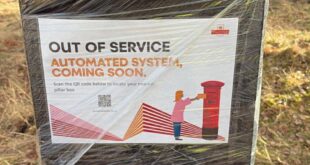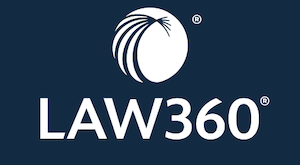Proactive Investors –
- What’s the story so far?
- Who’s best for the markets?
- Next live debate: 11June – all parties
Labour backs 95% mortgages
Labour will continue a Conservative scheme allowing first-time buyers to access low-deposit mortgages if it wins the election.
Back in 2021, when Rishi Sunak was Chancellor, he and his party introduced the mortgage guarantee scheme, a programme which allows lenders to front 95% of the initial cost of the house.
Jeremy Hunt, the current Chancellor, extended the scheme until July next year, aiming to help new buyers with the chance of getting onto the property ladder despite being in a high-interest rate environment.
Kier Starmer, the Labour leader, said he hoped to “turn the dream of owning a home into a reality”.
As part of the scheme, the government acts as the guarantor for part of the mortgage, making it more desirable for lenders to offer low-deposit deals
Labour said it hopes to have some 80,000 new homeowners within the next five years.
Stamp duty reform is what homeowners want
JPMorgan (NYSE:) has issued a reminder of the survey carried out by online estate agent Rightmove, where it asked 14,000 of its website users what they saw as the most important topics heading into the election.
Stamp duty is the issue that most homeowning voters want tackling by whichever government takeover in four weeks time, according to Rightmove.
Alongside stamp duty reform, a step up in houses being built for sale and to rent plus help for first-time buyers also featured prominently
Incentives to help both homeowners and landlords make their properties greener and speed up the home-buying process also scored highly.
Capital gains and kitchen sinks
Chief Secretary to the Treasury Laura Trott said Starmer is “asking for a blank cheque” to raise taxes across the board this election.
“Labour will tax the family home, drag pensioners into Labour’s retirement tax, taxing your work, taxing your car. You name it, Labour will tax it,” claimed Trott in remarks published in The Telegraph.
Not so, shadow defence secretary John Healey told Sky News this morning. “The taxes that are most important to people – income tax, VAT and National Insurance – will not be raised under a Labour government.”
But there is one field where promises are no so crystal clear: Capital gains tax (CGT).
According to courses cited by The Guardian, shadow chancellor Rachel Reeves is under pressure from colleagues to commit to CGT increases, should she be the one to deliver the autumn budget.
“Rachel has between 10 and 12 measures she is looking at which she hasn’t yet announced, all of which will raise small pots of money, with the ambition they should add up to something all together,” said one source.
Apparently, Reeves wants to pursue a “kitchen sink” approach to raising tax income in order to resuscitate Britain’s flailing public services.
Chancellor Jeremy Junt, on the other hand, has challenged Reeves to match the Tories’ pledges not to touch stamp duty and CGT.
“I am throwing down the gauntlet to Rachel Reeves and Sir Keir Starmer to join us in this pledge,” he wrote in The Telegraph.
Latest YouGov (LON:) polling
The latest YouGov election voting intentions polling, conducted on Monday and Tuesday before the head-to-head TV debate, has a 21-seat majority for Labour.
- Labour was on 40% (down from 46%)
- Tories on 19% (down from 21%)
- Reform UK on 17% (up from 15%)
- LibDems on 10% (up from 8%)
- Greens on 7% (unchanged)
In its weekly survey provided for Sky News, YouGov interviewed 2,144 GB adults online using new methodological change – which applies modelling to turnout and the behaviour of ‘don’t knows’, typically to reduce the Labour lead by three and increase the Lib Dem share by about two.
Most of the poll was conducted after Nigel Farage became leader of Reform on Monday.
UK Statistics Authority to investigate Sunak claim
The UK Statistics Authority has launched an investigation into a statement by Rishi Sunak that the economy is “going gangbusters” and that parties could misuse economic data in election campaigning.
Robert Chote, chair of the statistics watchdog, said the body will scrutinise whether the prime minister’s comments exaggerated the Tory’s economic performance.
Sunak used the “going gangbusters” phrase after it had been used by an ONS official in a media briefing, making the Daily Mail front page.
UK GDP growth was 0.6% in the first three months of the year, following a shallow recession in the second half of last year, with a decline of 0.3% in the fourth quarter after a 0.1% fall in the third.
Labour and SNP spar over North Sea licences
The North Sea has emerged as a hot topic in the 2024 election after numerous energy companies confirmed project delays due to concerns about a Labour-imposed windfall tax increase.
Earlier today, Jersey Oil & Gas plc cautioned that the UK general election could potentially slow the delivery of its Buchan gas field project.
Jersey and its partners said that the Buchan project’s timeline will be tied to securing fiscal clarity from the next government.
“With a UK General Election now announced, we are hopeful that fiscal clarity will be forthcoming in short order so that the industry can continue to do what it does best, namely investing in major capital projects that deliver vital low carbon homegrown energy and highly skilled jobs,” said Jersey chief executive Andrew Benitz.
Labour has pledged to raise the windfall tax on oil and gas companies by three percentage points, bringing the rate to an eye-watering 78%, to fund energy-transition projects.
In May, Serica Energy PLC (LON:), which also has a stake in Buchan, called on the UK government to reform the oil and gas tax regime.
Meanwhile, Scotland’s deputy first minister Kate Forbes today claimed that the Scottish National Party (SNP) has never been wholly opposed to new oil and gas licences being issued for the North Sea.
This is despite former leader Nicola Sturgeon being vocally opposed to new North Sea licences.
However, the current administration under new first minister John Swinney appears to be reconsidering this stance.
Forbes told journalists today: “We’ve been clear that we’re not against new licences per se, but they have to meet a climate compatibility test.”
Ian Murray, Labour’s shadow Scottish secretary, rebuked Forbes’ statement: “For Kate Forbes to say that the SNP never argued against future oil and gas licences is just false – Humza Yousaf called new oil and gas ‘tantamount to climate change denial’ just months ago.”
Tax row erupts as Labour dismisses Sunak £2,000 claim
One major talking point was Sunak’s claim that Labour would put up taxes by £2,100 if they won, citing Treasury civil servants as the source.
Not true said Labour, citing a letter from James Bowler, the Treasury’s top man, that the numbers were not produced by the Civil Service but were a Conservative party document.
Sunak said Labour has a £38 billion black hole to fill, but this is “patently untrue” said Pat McFadden, the Opposition’s campaign co-ordinator, adding it was even prepared to hold a TV debate (another one) to refute the claims.
Rishi and Keir trade blows but few land
So who won yesterday’s TV debate between Rishi Sunak and Keir Starmer?
That seemingly depends on who you support, with Labourites happy with Keir’s performance and likewise Tories impressed by Sunak’s spikiness.
True there was a lot of shouting making it at times like Prime Minister’s Questions on the road but with the voting four weeks away and not a manifesto in sight was it just a tad too soon?
Tuesday: Farage brings immigration centre stage
Immigration moved front and centre in the election skirmishes as Nigel Farage’s Reform Party promise of net zero migration prompted Rishi Sunak to say the Tores were proposing a visa cap.
Visas available to migrants would be reduced each year under a new Conservative government, the PM said, though there were no numbers.
Shadow home secretary Yvette Cooper pointed out that annual net migration had trebled under this government and this promise was nothing new.
UK banks to pay for Lib Dem’s care plans
Liberal Democrat leader Ed Davey has promised free home care for the disabled and housebound with the costs to be met by higher taxes on UK-based banks.
The Lib Dem’s estimate the plan would cost £3.7 billion a year by 2029, but independent think tank the Nuffield Trust suggested that was optimistic and the real cost would be higher.
Costs for nursing care and daily support, including hygiene and medication would be free, with carers to get a £2 an hour increment on top of the minimum wage
Residential care would not be free said the Lib Dems.
Recent cuts to the bank surcharge and the bank levy would be reversed to pay for the plan, said Davey.
Investment tax changes expected
With the polls pointing to an imminent change in government, Gary Smith, financial planning partner at wealth management firm Evelyn Partners, says this could bring significant changes to pensions and wealth planning, though campaign rhetoric offers few decisive answers.
“One elephant in the room is the prospect that a new government might look to the taxation of pensions, or other wealth assets, to escape the fiscal restraints the main parties have imposed on themselves,” he says.
The IFS and the IMF have warned that both parties’ public finance projections indicate a significant funding gap, unless unscheduled spending cuts are enforced, while polls have revealed that more than half of voters expect taxes to go up after the election if Labour or the Tories win.
With both parties having pledged not to raise any of the three biggest levies – income tax, national insurance and VAT – that account for the lion’s share of Treasury revenues, and Labour vowing not to raise the headline rate of corporation tax, Smith says: “A new government might look at the tax treatment of pensions or certain IHT reliefs to bridge a funding gap that seems bound to open up”.
As Labour previously objected to Jeremy Hunt’s pension taxation reforms as “a tax gift to the wealthy”, this could point to one potential change, while Smith says another way to limit the Treasury spend on pension tax benefits would be to reduce or do away with the 25% pension commencement lump sum, or to limit tax relief on pension contributions.
As either measure would be controversial and difficult, suspicions that a new government might look to cap or reduce tax relief in some way are leading some savers to stash cash into their pensions now, he says.
Chancellor betting
William Hill, owned by Evoke PLC, the renamed 888 Holdings (LON:), says recent betting indicates Tory cabinet members Jeremy Hunt and Grant Shapps will lose their seats in next month’s general election.
The bookmaker says betting is in line with recent polls.
Chancellor Hunt is priced at even-money to retain his seat, while defence secretary Shapps is at 4/1 odds to keep his seat, well behind the Labour candidate in the betting to win Welwyn Hatfield at 1/7 on.
Contrary to recent poll predictions, the bookie says Penny Mordaunt is 8/11 favourite to cling onto her constituency, with Labour even-money to win Portsmouth North.
William Hill spokesperson, Lee Phelps, said: “Recent polls point to the Tories being routed by Labour across the UK when the public go to the polls next month, with predictions that Rishi Sunak’s party could lose upwards of 200 seats, and some big names are expected to lose their constituencies in the process.”
UK election polling update
Labour would win a historic landslide at the general election, according to a YouGov poll published overnight, which shows the party is expected to win a 194-seat majority.
The 422 seats for Labour would exceed their landslide victory in 1997 under Tony Blair and be the highest number of seats of any party at any election in a hundred years of Westminster history.
It suggested the Conservatives would fall back to just 140 seats, down from 365 at the 2019 election.
The poll was commissioned by Sky News as the first of three polling projections, known as multi-level regression and post-stratification (MRP) models that uses polling data.
Farage return a problem for Tories, says investment bank
Jim Reid at Deutsche Bank (ETR:) noted that with the general election now exactly a month away, the significant news overnight was Nigel Farage announcing that he would become leader of the right-wing Reform UK party.
“Farage was previously the leader of UKIP for many years, and played a significant role in the Brexit campaign of 2016. He previously said that he wouldn’t stand for Parliament at this election, but reversed course yesterday and said he’d be standing in the Essex seat of Clacton, which was the only seat won by UKIP in the 2015 general election.
“This could pose a big problem for the governing Conservatives, since if they lose votes to Reform in key seats, it would mean that the opposition Labour Party are able to win many more seats.”
Monday: Royal Mail (LON:) headache
Both Labour and Conservatives have remained relatively neutral regarding Czech billionaire Daniel Kretinsky’s 370p a-share takeover.
Even though the financial terms of the deal appear to be signed, sealed and delivered, there remain significant political roadblocks to overcome.
Over the weekend, Kretinsky warned Royal Mail stamp prices could continue to surge in the coming years.
With live TV debates between Starmer and Sunak scheduled for the upcoming month, the topic of the Royal Mail is more than likely to be discussed.
As Labour is the overwhelming favourite to win the upcoming election, Kretinsky is veering towards a political showdown with a Keir Starmer-fronted, labour union-aligned government.
At the end of last week, Kretinsky also said he plans to shake up the structure of the postal service, which could lead to thousands of jobs being cut and the removal of red pillar boxes.
Polling latest
The latest polls show Labour is retaining a big lead over the Tories.
Earlier, potentially significantly (but also potentially just self-interestedly) Nigel Farage has posted to social media that he will be making “an emergency general election announcement at 4pm today”.
NEW: Keir Starmer’s Labour Party retains a 22-point lead over Rishi Sunak’s Conservatives, Bloomberg’s polling average shows https://t.co/e8ij23BgSi
Bookmark this thread, where we’ll be tracking how the polls move during the UK election campaign⬇️ pic.twitter.com/8GsLtCojjX
— Bloomberg UK (@BloombergUK) June 3, 2024
A poll by GB News indicated Labour has extended its lead over the Conservatives from 11 points to 21 points among the right-wing TV station’s viewers, with Labour on 46%, the Tories on 25%, and Reform UK on 18% of the vote.
Read more on Proactive Investors UK
Disclaimer



